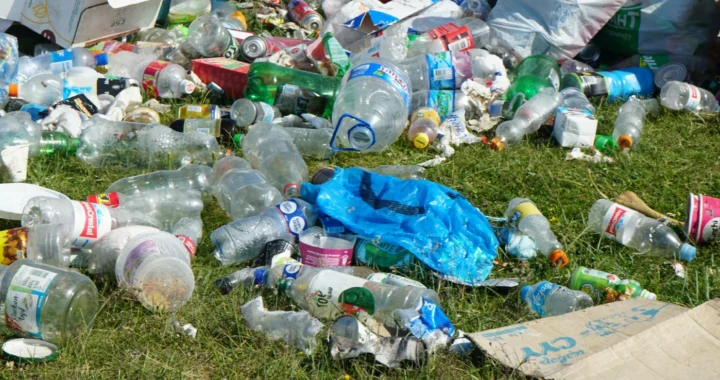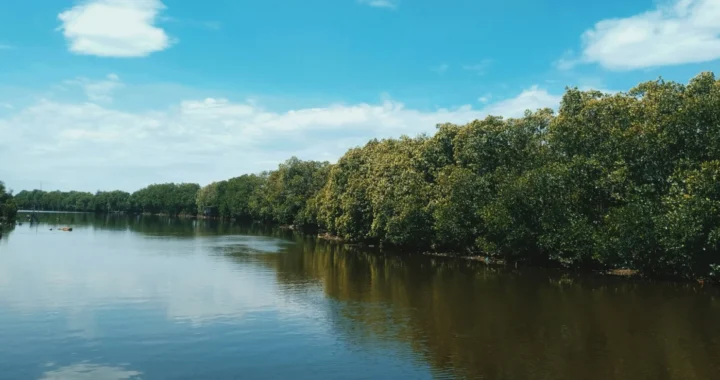Indonesia’s Green Transition amid Global Uncertainty and Domestic Pressures

Illustration by Irhan Prabasukma
With its vast tropical rainforests and abundant renewable energy potential, Indonesia is expected to play a pivotal role in climate action and energy transition. Yet, this ambition is facing mounting challenges, both from external and internal domains. The current reality of Indonesia’s green transition leaves a lot to be desired, but it is not impossible just yet.
A Closer Look at Indonesia’s Green Transition
In an ideal scenario, Indonesia’s current technological capacity could enable the country to generate up to 432 GW of electricity. However, only about 7 GW is currently installed, with approximately 66% coming from hydroelectric power and around 27% from geothermal sources. As a new target, Indonesia’s state-owned electricity company (PLN) has announced plans to add 29 GW of capacity by 2028.
The Indonesian government also set out a plan to phase out its coal-fired power plants by 2040. So, in November 2022, Indonesia joined the Just Energy Transition Partnership (JETP), with an initial funding package of US$20 billion over the next three to five years. This Partnership aims to develop a Comprehensive Investment and Policy Plan (CIPP) to provide a set of strategic policies to achieve the goal of net-zero emissions by 2060.
Forestry also plays a critical role in Indonesia’s climate strategy—at least, it should. Despite having over 90.9 million hectares of forests, the country is also the eighth-largest emitter of greenhouse gases in the world, releasing more than 638.8 million tonnes of CO₂ annually. In response, Indonesia has partnered with international donors—such as Norway, the United States, and Germany—to implement several forest conservation initiatives, including Reducing Emissions from Deforestation and Forest Degradation (REDD+), Sustainable Environmental Governance Across Regions (SEGAR), and the International Climate Initiative (IKI).
Despite the potential, Indonesia’s green transition is advancing at a snail’s pace. It has been facing serious challenges, both from global uncertainty and domestic pressure.
Global Uncertainty
Globally, the war in Ukraine has disrupted energy markets, especially oil. While oil-exporting countries like Norway—one of Indonesia’s largest green donors—benefited from the crisis, the pressures faced by Europe as a whole have jeopardized many green initiatives, especially those funded by European nations. Additionally, the war has pushed the EU to accelerate its energy transition and reduce reliance on Russian energy supplies. As a result, Europe is now competing with developing countries for alternative energy sources, which has contributed to energy crises in several Latin American and Asian nations, leaving millions without access to electricity and heating.
U.S. policies under Donald Trump have also affected Indonesia’s green transition. In January 2025, Trump ordered the dismantling of USAID, which had long provided millions of dollars to support global development projects, including some in Indonesia. Even more concerning, in March 2025, the U.S. officially withdrew from the JETP, potentially impacting over US$2 billion in pledged funding for the country. These actions are expected to affect climate financing in Indonesia.
Domestic Pressure
Domestically, the leadership transition from Joko Widodo to Prabowo Subianto did not come as smoothly as initially expected. The early months of his administration have been marked by political turbulence. For instance, the new administration’s inclination to continue pursuing downstreaming has raised concerns about the commitment to Indonesia’s green transition agenda.
Another issue comes from how populist policies, such as the “Makan Bergizi Gratis” (Free Nutritious Meals) program—allocated a substantial 71 trillion IDR—are prioritized over climate adaptation, education, and healthcare. In addition, various newly proposed policies, such as amendments to the Armed Forces Law, were met with nation-wide citizen protests and have sparked concern among global investors, causing major international funds and money managers to hesitate in making significant investments in Indonesia.
For Indonesia’s Green Transition: Aligning Policies and Fostering Trust
It is important for Indonesia to build a stable set of policies to attract green investment. While climate goals have been codified in laws and long-term strategies, the country still needs concrete steps for a good investment climate. Therefore, a comprehensive blueprint—with clearly defined goals, performance indicators, and implementation boundaries—is crucial.
After all, Indonesia’s green transition does not come cheap; securing reliable financing will be critical. Danantara, a newly established superholding initiative, has the potential to be a game changer in transforming the country’s climate finance landscape by attracting greater investor confidence and diversifying funding streams. However, for Danantara to truly become a catalyst, it must first address concerns related to legal and systemic risks. This requires a commitment to transparency and merit-based governance to safeguard against conflicts of interest.
In parallel, the government must carefully balance populist programs with long-term strategic national agendas. While early-term mandates may require Prabowo to deliver on campaign promises, fiscal space must also be preserved for national priority programs such as education, health, and green projects. Thus, an integrated budgeting approach that explicitly links expenditures with sustainability objectives should be implemented. Greater transparency in budget planning would not only help policymakers identify where resources can be optimized but also enable the public to monitor spending. Ultimately, all stakeholders must acknowledge that climate commitments are a long-term undertaking, rather than a symbolic buzzword without real actions.
Editor: Nazalea Kusuma

Co-create positive impact for people and the planet.
Amidst today’s increasingly complex global challenges, equipping yourself, team, and communities with interdisciplinary and cross-sectoral insights on sustainability-related issues and sustainable development is no longer optional — it is a strategic necessity to stay ahead and stay relevant.
Yusril Mahendra
Yusril Mahendra is a Master’s student in International Relations at Gadjah Mada University, Indonesia. He previously worked as a researcher at FPCI UMM, SmartID Indonesia, and the Center for Intermestic Studies, focusing on non-traditional security, environmental politics, and political discourse.


 Risks and Opportunities of Submarine Communication Cables for Sustainable Development
Risks and Opportunities of Submarine Communication Cables for Sustainable Development  Rising Attacks and Violence Against Land and Environmental Defenders
Rising Attacks and Violence Against Land and Environmental Defenders  Unveiling Potential Technological Risks amid Global Crises
Unveiling Potential Technological Risks amid Global Crises  Waste-to-Methanol, a Potential Sustainable Solution for Waste and Energy
Waste-to-Methanol, a Potential Sustainable Solution for Waste and Energy  In Peru, Stingless Bees Are Granted Legal Rights
In Peru, Stingless Bees Are Granted Legal Rights  Looking into the Government Regulation on the Protection and Management of Mangrove Ecosystems in Indonesia
Looking into the Government Regulation on the Protection and Management of Mangrove Ecosystems in Indonesia